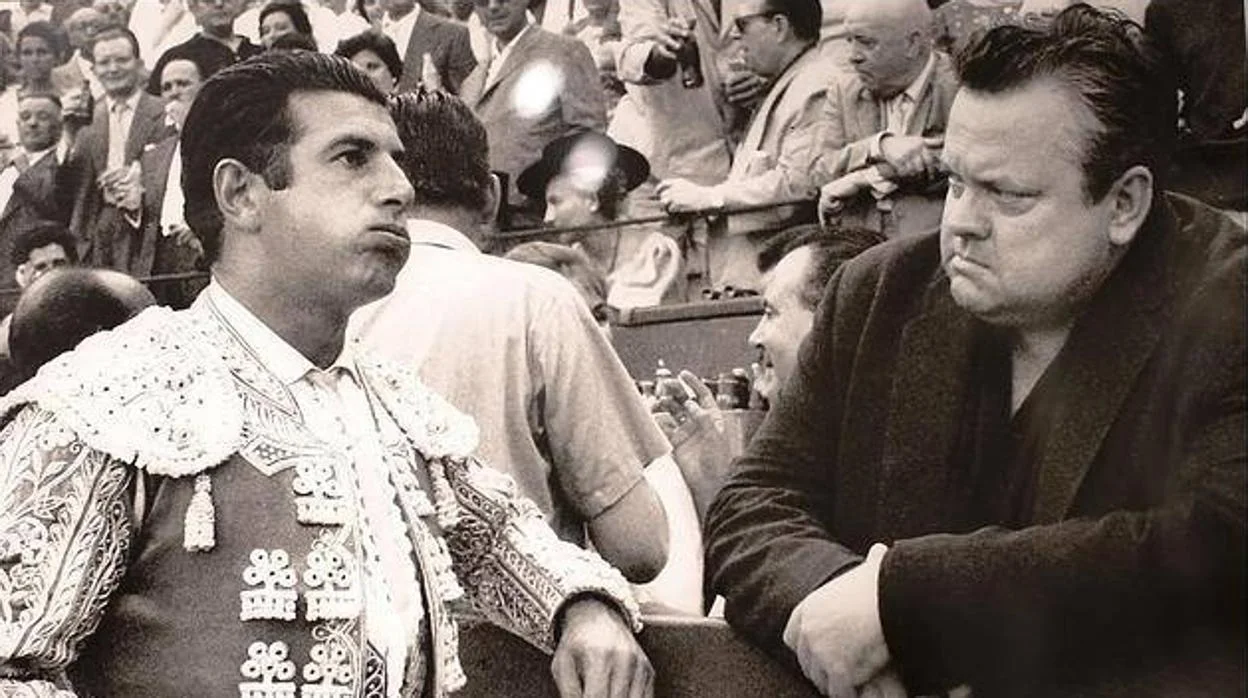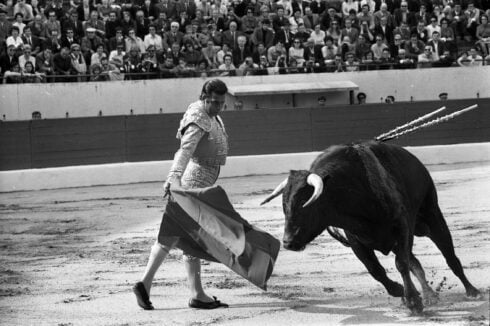

WHEN Cayetano Ordoñez (‘El Niño de la Palma’) hit the big time as a bullfighter, he bought himself a finca.
Cayetano was a gypsy, and had been raised in poverty in Ronda. His father made a precarious living as a cobbler. We’re talking a hundred years ago.
Señor Ordoñez’ customers were illiterate, so – as a marketing ploy – he placed a big palm frond over his shop doorway. When people needed their shoes re-soled, they knew to head for ‘La Palma’.
Bullfighters need nicknames. Think of Manuel Rodríguez, the greatest of them all. How many young men in Andalucia are named ‘Manuel Rodriguez’? Thousands. But ‘Manolete’ stands out from the crowd.
That’s why young Cayetano called himself, ‘The Boy from La Palma’.
What has any of this to do with Orson Welles?
The finca, ‘El Recreo’, was handed down to Cayetano’s son, another bullfighter, Antonio Ordoñez. Antonio was on very friendly terms with Ernest Hemingway and, later, Orson Welles.

The two Americans were big fans of the bulls, and were frequent guests at El Recreo.
To this day the finca has remained in Ordoñez hands. It was once in the countryside, half a mile outside Ronda, but urban sprawl has now enveloped the area. El Recreo, however, still stands proud.
When Welles, the great actor-director, died suddenly in 1985, among his papers was found his hand-written wish to be cremated – and to have his ashes sprinkled in the finca’s well in his beloved Ronda.
Clearly, El Recreo was emotionally very important to him, and his wish was carried out. The farm’s well is now known as the ‘Pozo Orson Welles’.
Orson Welles was born in Wisconsin in 1915. His colossal talent was obvious from very early on. At 16 years of age he toured Ireland on his own, and talked his way into acting roles in Dublin’s Gate Theatre.
Back in the USA, he conquered Broadway as a young drama director of genius. Progression to Hollywood was the next obvious step.

He was 25 years old when he wrote, directed and starred in Citizen Kane, a film which critics regularly vote to be ‘the greatest movie ever made’.
Charles Foster Kane is a fictitious newspaper magnate, along the lines of Rupert Murdoch. Through a kaleidoscope of stunning images, we watch Kane’s life as he goes from a young, optimistic hero to a sad, broken old man.
He had fabulous wealth, but he wanted love – and never found it.
Immediately before the sensational Citizen Kane, Welles caused an enormous stir with his radio production of The War of the Worlds.
He came up with such a powerful, convincing rendition of the HG Wells novel about martians invading the earth that thousands of Americans thought it was really happening.
READ MORE:
People packed up the family car and fled their homes to get away from the martians!
Because of his high intelligence and intimate knowledge of cultural traditions, Welles was drawn to Europe. After World War Two he spent most of his time (and made many of his films) in Italy and Spain.
He followed the bulls, year on year. An honoured guest, he rubbed shoulders with Spain’s finest. Matadors frequently dedicated their ‘toros’ to him.
But Spain was more than a spectacle for Welles – it was a sanctuary. By the 1950s and 1960s, he was a man in constant battle with Hollywood studios, critics, and his own health. He carried his immense bulk with difficulty, often suffering from gout, swollen legs and shortness of breath. Walking the cobbled streets of Ronda was no easy feat, but the town gave him peace. Locals recall seeing him at bars and cafés, sweating heavily in the summer heat, but always surrounded by admirers.
He was witty, magnetic, and larger than life, yet there was sadness too. Friends said Welles felt misunderstood, abandoned even, by the American industry he had once conquered. Spain, with its long dinners, bullfights and traditions, offered him something different: respect without judgement.
Ronda, in particular, became his refuge. At El Recreo he could eat, drink and laugh with Antonio Ordoñez and his family, away from the pressures of Hollywood. “He found in Spain a kind of family,” one friend remarked, “and in Ronda, a home.”

It is interesting to note that this man, a social lion in New York, London, Paris and Venice, chose to have his ashes scattered in little Ronda.
We can only suppose that the most precious memories that he carried into his old age were of tranquil, sun-kissed evenings, laughing and telling stories with dear friends, and drinking sangria around the garden table at El Recreo – the place where Orson Welles, for all his brilliance and pain, finally found rest.
Click here to read more Spain News from The Olive Press.






